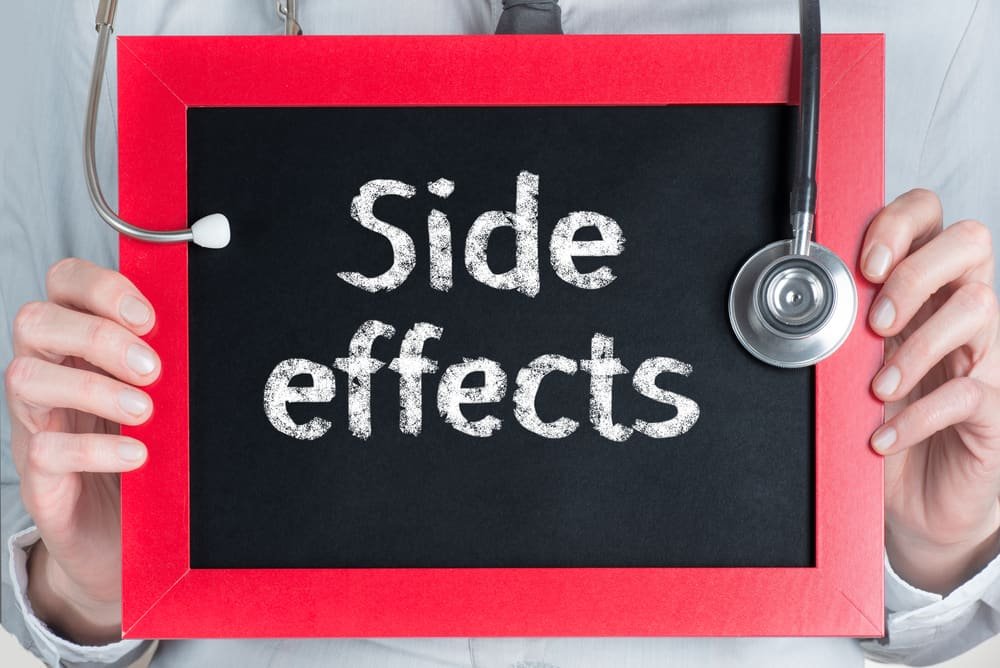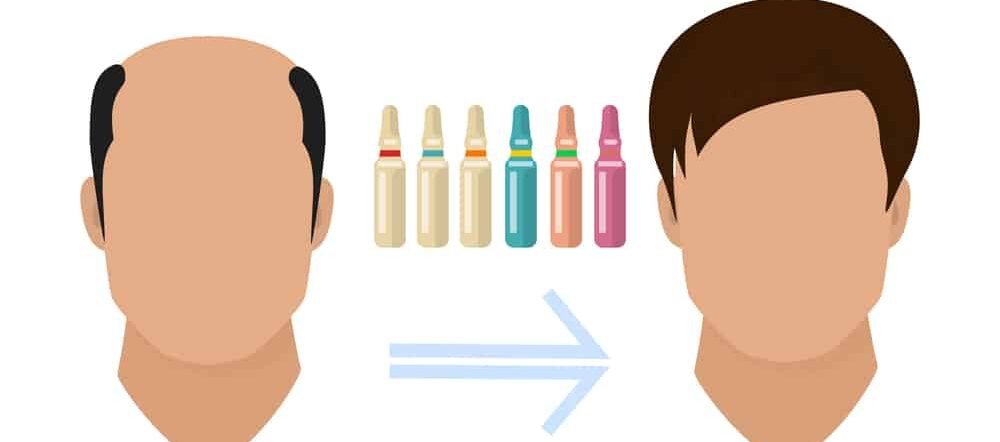What are Finasteride Side Effects?
Are you losing your hair? It’s probably because of the DHT hormone attacking your hair follicles.
Over time, this attack damages your hair follicles and makes them unable to grow and hold hair.
Finasteride is one of the most prescribed treatments for combating hair loss. It is a Dihydrotestosterone (DHT) blocker, and as with any other substance of the same category, it is proved to be effective in slowing down or preventing further hair loss.
However, most treatments for hair loss may come with a range of side effects that every patient should know about. Finasteride may cause some unwanted symptoms, but remember that each person’s experience is different.
I’ll tell you everything you need to know about the side effects of Finasteride and how it may affect your sexuality.
What is Dihydrotestosterone (DHT) and how does it cause hair loss?
“DHT” stands for Dihydrotestosterone. It falls under the category of “metabolite” of testosterone. Although their functions are similar, DHT is stronger than testosterone. Both testosterone and DHT are androgens. The enzyme Type II 5α-reductase (or five-alpha reductase) is responsible for converting regular testosterone into DHT.
DHT and testosterone are different hormones. DHT is more efficient and reacts to binding differently.
DHT is the main cause for male pattern baldness for those who are genetically prone to pattern baldness.
The hormone binds to androgen receptors in the scalp, and over time causes damage to the hair – a process called hair miniaturization.
Also – according to studies – DHT may be one of the causes of prostate cancer and is also related to benign prostatic hyperplasia or BPH.
How Finasteride works to protect your hair from DHT (DHT blocker)
As stated, Finasteride is a DHT blocker. Or more specifically, finasteride works as an agent to block the enzyme most responsible for converting testosterone into DHT.
Therefore, the use of this medicine may result in higher testosterone levels and lower DHT levels in one’s body and scalp.
Many men with androgenic alopecia may have too much DHT, or their hairs are sensitive to DHT and other hormones. Their follicles become “miniaturized.”
Taking a typical daily dose of 0.5 mg to 1 mg of Finasteride reduces the DHT concentration in the body by 64-69%.
This reduction in DHT may be enough to stop or slow down further hair loss in males, and some people may even see lost hair grow back as their weakened hair follicles are able to grow and hold the hair at lower DHT levels.
It is crucial to note that Finasteride is only prescribed to men with androgenic alopecia. Usually, the drug comes in a pill form with 1 mg (brand name Propecia) or 5 mg (brand name Proscar), where the 5 mg pills are often cut into 4 or 8 pieces to reduce the daily dose to between 0.625 mg and 1.25 mg.
As you can see in this study, the results from using 1 mg of finasteride for 12 and 24 months compared to using a placebo is quite a difference in hair count after 6 to 12 months. The people who keep using finasteride have hair growth in 12 months and seem to keep most of their hair after 24 months, compared to those who do not use it and continues to lose hair.
Also, compare the placebo users with those who started using finasteride after 12 months, which also saw a huge increase in hair count. Just as the finasteride users who switched to placebo after 12 months, had rapidly lost all of their progress after 24 months.

This medication is never prescribed to women or children.
The Side Effects of Finasteride
Finasteride is also known to cause a decrease of serum prostate-specific antigen (PSA). This has major significance in men who have cancer, and their PSA levels are continually checked.
It is also known to have caused a wide range of sexual side effects such as erectile dysfunction. However, serious long-term side effects after discontinued use are rare.
Finasteride’s sexual side effects
Finasteride is prescribed differently, depending on the purpose it is used for – in men with androgenic alopecia, the prescribed dose is 1mg daily. In contrast, in men with BPH, the dose is 5 mg.
Even though the FDA has approved the use of the medication, some of the most common side effects reported have to do with men’s sexuality.
Studies have revealed that the prolonged use of this medication can either cause temporary side effects or adverse effects over time.
Also, higher doses of the medication seem to increase the risk and severity of side effects. Considering that finasteride seems to have a maximum effective dose at around 1 mg which reduces DHT in the body by roughly 68%, a 5 mg dose may only give another 1 or 2 % of reduction in DHT. In other words: Once a person reaches a maximum effective dose of 0.25 mg to 1 mg, increasing the dose of finasteride will only bring a tiny increase in its effectiveness in DHT reduction (and it may come with a much higher risk of side effects).
Commonly reported side effects from finasteride:
- Decreased libido
- Ejaculation disorders
- Erectile dysfunction
However, allegedly these side effects affect 4-6% of men who use it and are usually reversible once the finasteride treatment is discontinued.
Reddit Horror Stories from using DHT blockers such as Finasteride
Reddit is one of the biggest online discussion forums.
The good thing about Reddit is that people can be anonymous if they choose to, and many people use its anonymity to tell stories they usually wouldn’t tell if they could be identified.
Limp penis and suicidal thoughts
One horror story from using DHT blockers is a story from a guy who was 18 years old, started taking finasteride, and one day he woke up with a limp penis that had trouble urinating. He went on to have no sex drive at all, he lost muscles, became super lazy and lethargic, experienced brain fog, could not concentrate or focus, memory loss, thyroid problems, felt anxiety and restlessness, had gynecomastia (breast development), felt a pressure in the pelvic floor and the prostate, experienced his testosterone levels changing frequently all the way from 600 to sometimes less than 100. This guy says in the title he does not want to live anymore.
You can read the full post here.
Whether this was all caused by finasteride, or whether the drug’s side effects contributed to this is hard to say for sure 100%.
Other side effects
Besides the adverse sexual effects and other symptoms mentioned above, Finasteride might potentially cause insomnia and depression. It has been reported that some people have suffered from muscle atrophy and even lack of mental concentration (like in the horror stories from Reddit), but again, the effects seem to be very rare and vary depending on the individual.
Other studies have reported long-term effects that are very much worrying. Depression is an uncommon side effect, but the condition may last even after the drug is discontinued.
Over the years, this treatment for hair loss has been controversial due to how it works on the hormonal system and the side effects that it may bring. Some people wonder why it was approved in the first place if it has the risk to cause health complications in the long term.
A meta-study (2014) noted the symptoms of “post-finasteride syndrome” (it is not a confirmed disease yet). This research took into account twelve different studies, each of which had shown high rates (over eighty or ninety percent each) of adverse sexual and psychological effects.
Although Finasteride can be a very effective tool in treating hair loss, it could potentially leave you with long-term side effects as a consequence.
According to the same meta-study, the medication has been involved in about fifty-nine suicide cases where the victims used finasteride. ‘
It’s also worth noting that since 2012, Finasteride labels stopped describing the side effects as “temporary” and now describe them as “persistent” (probably to legally cover their a**). Furthermore, the company that owns the finasteride brand name Propecia, Merck, has dealt with more than 14,000 lawsuits since the beginning of the 2010 decade.
Whether you are considering hair loss treatment or not, you should consider the risk of all these potential side effects and their severity, and of course, always consult with your doctor.




